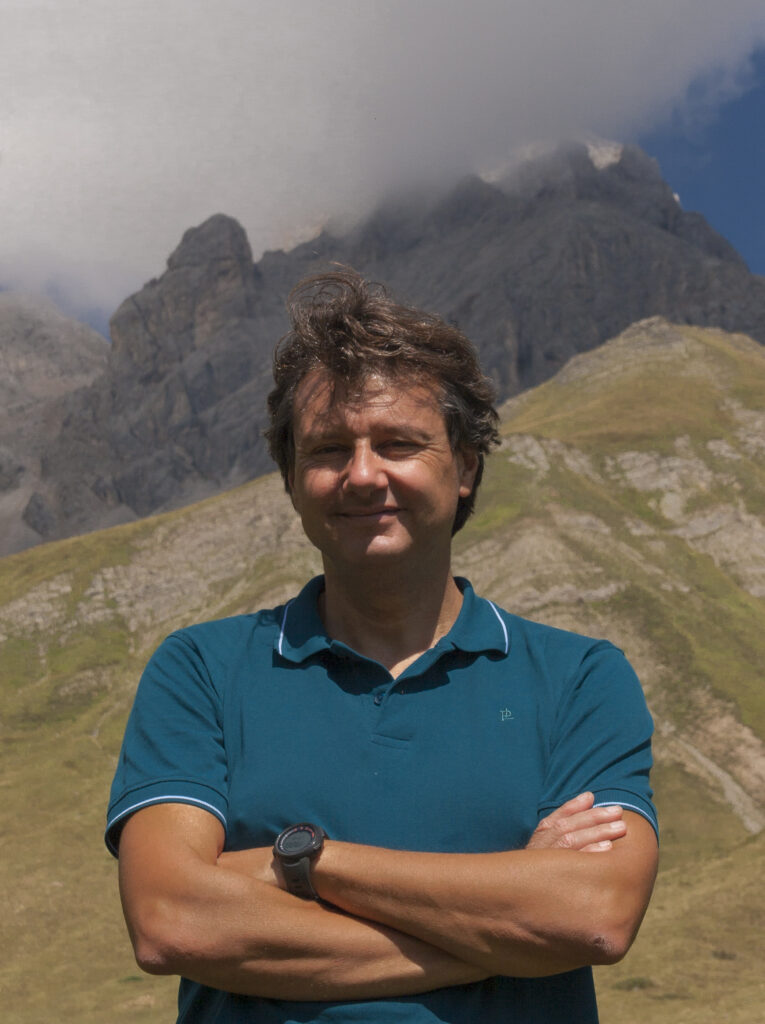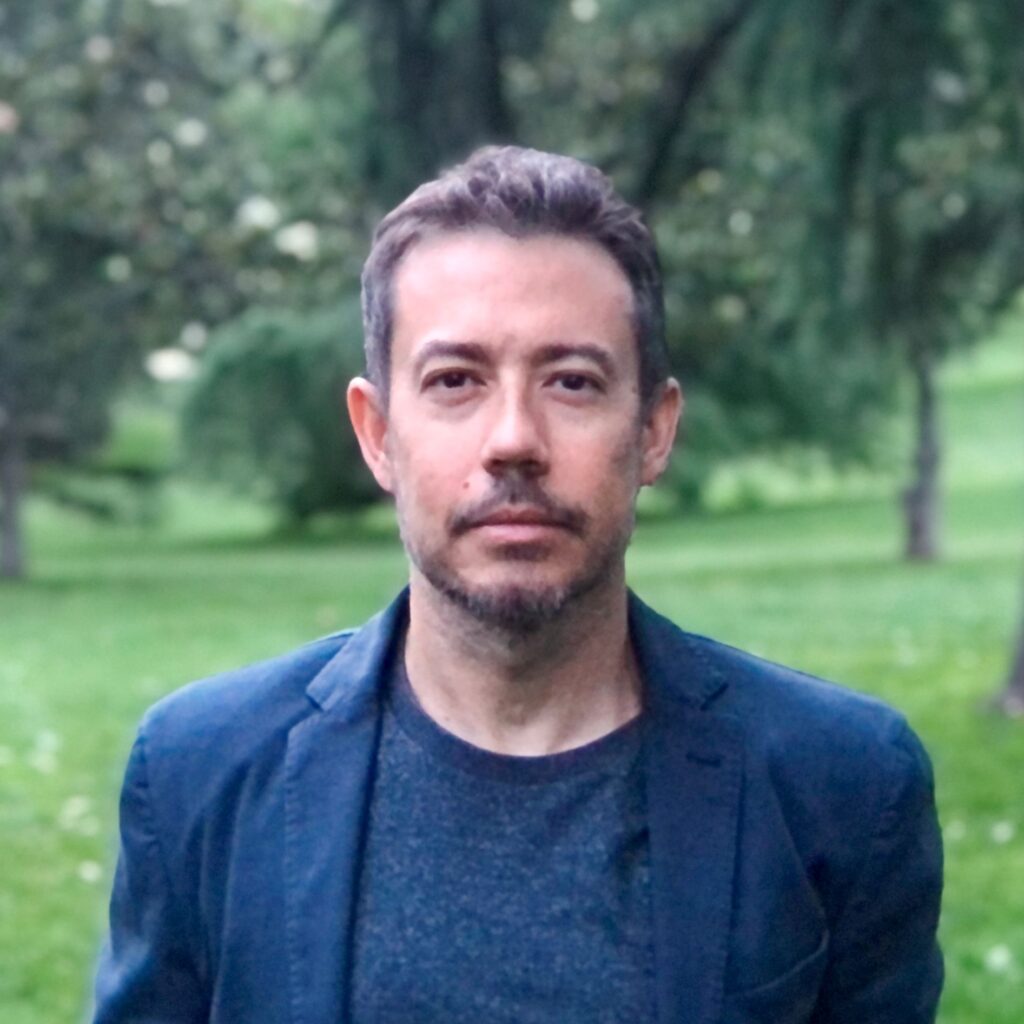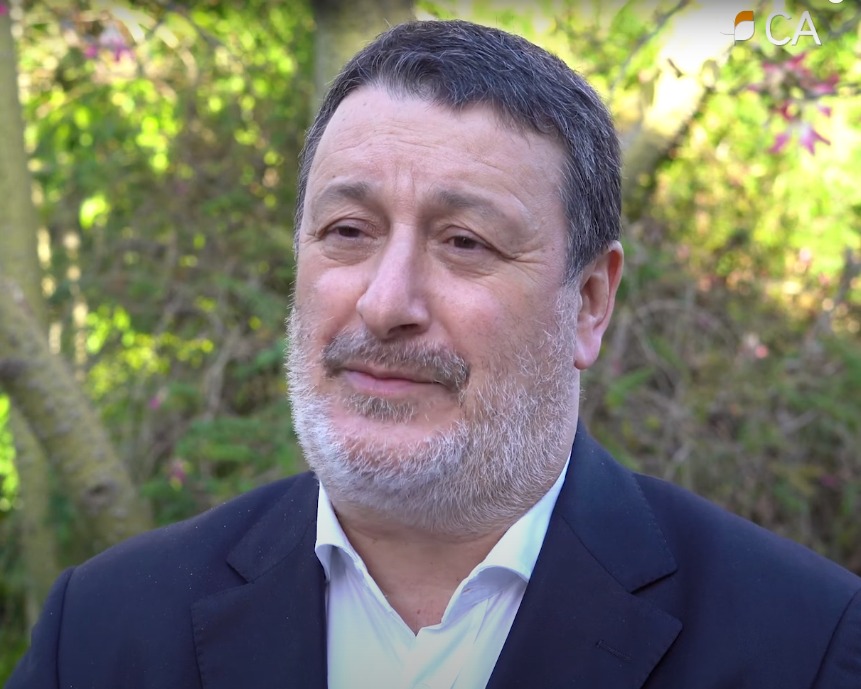Fechas: del 17 al 19 de abril de 2024
Venue: Instituto Politécnico de Beja
| 18:00-20:00 | Recogida de documentación en el Instituto Politécnico de Beja Colgar los paneles: S1, S2, y S3 Instalación de ponencias en el ordenador: S1 y S2 |
08:30-09:00 | Recogida de documentación | |||||
09:00-09:30 | Inauguración oficial | |||||
09:30-10:30 | Conferencia Inaugural invitada: Professor Dr. Paolo Barbèri (Scuola Superiore de Sant’Anna,Pisa, Itália) Functional biodiversity to foster ecological weed management | |||||
10:30-11:30 | Sesión 1. Estrategias eco-innovadoras y Servicios Ecosistémicos (I) Moderadores Alicia Cirujeda (CITA, Aragao) e Anabela Belo (Univ Évora)
Turno de preguntas y debate | |||||
11:30-12:00 | Pausa café y visita Paneles - Sesión 1 | |||||
12:00-13:00 | Sesión 1. Estrategias eco-innovadoras y Servicios Ecosistémicos (II) Moderadores Paula Castro (Univ Coimbra) e Jordi Recasens (Univ Lleida)
Turno de preguntas y debate | |||||
13:00-14:30 | Almuerzo en el Hotel BejaParque y Visita Paneles - Sesión 1 | |||||
14:30-15:30 | Conferencia invitada. Dr. José Peña (CSIC, Madrid, Espanha) Malherbología 4.0: soluciones tecnológicas para la gestión precisa de malas hierbas | |||||
15:30-16:30 | Sesión 1. Estrategias eco-innovadoras y Servicios Ecosistémicos (III) Moderadores Nuria Pedrol (Univ Vigo) e Cristina Amaro da Costa (IPViseu)
Turno de preguntas y debate | |||||
16:30-17:00 | Pausa café y visita Paneles - Sesión 2 | |||||
17:00-18:15 | Sesión 2. Gestión de Malas hierbas en Agricultura de Precisión Moderadores Ana I. de Castro (CSIC, Madrid) e Cesar Fernandez-Quintanilha (CSIC, Madrid)
Turno de preguntas y debate | |||||
18:30-20:30 | Grupo A - Reunión del CPRH (Comité para la prevención de la resistencia a los herbicidas) Grupo B - Presentación interactiva en 3D del complejo multiusos de Alqueva (el mayor lago artificial de Europa, con 130.000 hectáreas de regadío) |
| 09:00-10:00 | Conferencia invitada. Professor Dr. António Mexia (ISA, Univ Lisboa, Portugal) De las malas hierbas de los campos de cereales hasta la Malherbologia | ||||
| 10:00-11:00 | Sesión 3. Controlo químico y resistencia a herbicidas (I) Moderadores Maria Dolores Osuna (CICYTEX) e Ana Zabalda (Univ. Navarra)
Turno de preguntas y debate | ||||
| 11:00-11:30 | Pausa café y visita paneles - Sesión 3 | ||||
| 11:30-12:30 | Sessão 3. Controlo químico e resistência a herbicidas (II) Moderadores José Montull (Univ Lerida) e Isabel M Calha (INIAV)
Turno de preguntas y debate | ||||
| 12:30-13:30 | Almuerzo en el Hotel BejaParque y Visita paneles - Sesión 3 | ||||
| 13:45-19:00 | Visita técnica Vale da Rosa / Herdade do Marmelo – Nutrifarms | ||||
| 20:30 | Cena de Gala - Pousada de São Francisco |
| 09:00-10:00 |
Conferencia invitada. Jose Luis Andujar (CSIC, IAS- Cordoba, Espanha) Malas hierbas?: Cambio de paradigma en Malherbologia |
||||||
| 10:00-10:45 |
Sesión 4. Biología y Agroecología de malas hierbas (I) Moderadores María Arias-Martin (INIA, Madrid) e Francisca Aguiar (ISA, Univ. Lisboa)
Turno de preguntas y debate |
||||||
| 10:45-11:15 | Pausa café y visita Paneles - Sesión 4 | ||||||
| 11:15-12:00 |
Sesión 4. Biología y Agroecología de malas hierbas (II)
Turno de preguntas y debate |
||||||
| 12:00-12:30 | Conclusiones del Congreso y Clausura |

Escola Superior de Sant’Anna, Pisa
Professor in Agronomy and Field Crops at the Center of Plant Sciences of the Scuola Superiore Sant’Anna in Pisa, where he coordinates the Research Group in Agroecology (GOA) and coordinated the International PhD Programme in Agrobiodiversity (2013-2019). He is involved in inter- and transdisciplinary research on the link between agrobiodiversity and the provision of ecosystem services (functional agrobiodiversity) in different agroecosystems and at different temporal and spatial scales (field, farm, territory), increasingly conducted with a participatory approach. He is also involved in the ecology and management of wild and weedy vegetation and the design of low-input, organic and agroecological cropping and farming systems. He regularly participates in regional, national and international research projects (he has won 18 European FP6, FP7, Horizon 2020, Horizon Europe and ERA-NET projects since 2007).
He has participated as (co-)author in > 360 scientific papers, many of them published in the best international journals in the field. He collaborates as an expert agroecologist with FAO, the European Commission (Joint Research Centre in Ispra, research project evaluator), EFSA (environmental risk assessment of GMOs in agriculture), the Italian Ministry of Agriculture and (on organic farming). In 2015-2018 he was a member of the panel for the evaluation of the efficacy and risk of biopesticides for the purpose of their authorization (EU Southern Zone -France, Greece, Italy and Spain). From 2002 to 2015 he was scientific secretary, vice-president, president and past-president of the European Weed Research Society.
He is co-founder of Agroecology Europe (www.agroecology-europe.org), of which he was vice-president, and of AIDA-Italian Agroecology Association, in which he is a member of the Executive Board. He is on the list of the World’s Top 2% Scientists compiled by Stanford University:
https://elsevier.digitalcommonsdata.com/datasets/btchxktzyw/3
Author’s metrics (Scopus, 11 January 2024): – H index: 30. – Number of papers in Scopus: 84 (with 335 co-authors). – Number of citations: 4039 (by 3344 papers). – International collaboration: 63.5%. – Documents in top citation percentiles: 53.8%. – Documents in top 25% journals: 70.8%. – FWCI: 1.57.
Additional information:
www.santannapisa.it/en/personale/paolo-barberi
www.linkedin.com/in/paolo-barberi-a675b460
www.researchgate.net/profile/Paolo_Barberi
https://scholar.google.com/citations?user=CJc76yYAAAAJ&hl=it
www.scopus.com/authid/detail.uri?authorId=6603138372
To follow me on X (formerly Twitter): @paolo_barberi

Instituto de Ciencias Agrarias (ICA), CSIC
Doctor ingeniero agrónomo por la universidad de Córdoba (2006) y, actualmente, científico titular del ICA-CSIC, donde co-dirige el grupo Tec4agro (https://tec4agro.csic.es/). En sus investigaciones destaca el uso de teledetección y tecnologías afines en el contexto de la agricultura de precisión, con el objetivo principal de proponer y validar estrategias de producción y protección de cultivos más sostenibles y eficientes, siendo pionero en el uso de drones para la monitorización de los cultivos y el control localizado de malas hierbas. Ha publicado +100 artículos científicos y divulgativos sobre sus investigaciones en diversos cultivos leñosos (olivar, viña, almendro) y herbáceos (maíz, girasol, trigo, tomate, arroz). Es socio de la SEMh desde 2001 y ha recibido el premio Pierre C. Robert otorgado por la International Society of Precision Agriculture (ISPA).

Instituto Superior de Agronomia, Universidade de Lisboa
Full Professor of Integrated Pest Management and Applied Entomology University of Lisbon | UL · Agronomy Faculty (Instituto Superior de Agronomia) Aggregate in Crop Protection; PhD in Applied Biology; DIC in Pest Management; MSc in Crop Production; Agronomist
Responsible for teaching and research in integrated pest management.
Worked on greenhouse horticulture, vineyards, pome, prune and citrus orchards, olive groves, cereals and stored dry agricultural products, both in terms of risk assessment techniques and economic thresholds, and in terms of chemical, biotechnical and biological control agents.

Instituto de Agricultura Sostenible, CSIC
José Luis González Andújar es investigador en el Instituto de Agricultura Sostenible (CSIC). Su área de investigación se centra en el estudio de la agroecología de las malas hierbas y su manejo integrado desde una aproximación interdisciplinar. Lidera el grupo de Agroecologia de malas hierbas de la Junta de Andalucía. Ha publicado mas de 300 trabajos muchos de ellas en revistas de prestigio como Nature, Journal of Theoretical Biology, Weed Research, Weed Science, etc. Es miembro Honorario de la Weed Science Society of America (WSSA), profesor honorario de las Facultades de Agronomía de la Universidad de Teheran (Iran) y de la Universidad Nacional del Sur (Argentina), y miembro electo del Colegio de Posgrado de la Facultad de Agronomía de la Universidad de la Republica (Uruguay).
Ha sido Director Científico del Laboratorio Internacional de Cambio Global (CSIC), Jefe del Departamento del Protección de Cultivos del Instituto de Agricultura Sostenible, Presidente de las Sociedades Española de Malherbologia, Presidente de la Asociación Latinoamericana de Malezas, Presidente de la Sociedad Española de Biometría y Presidente de la Región Española de la International Biometric Society.